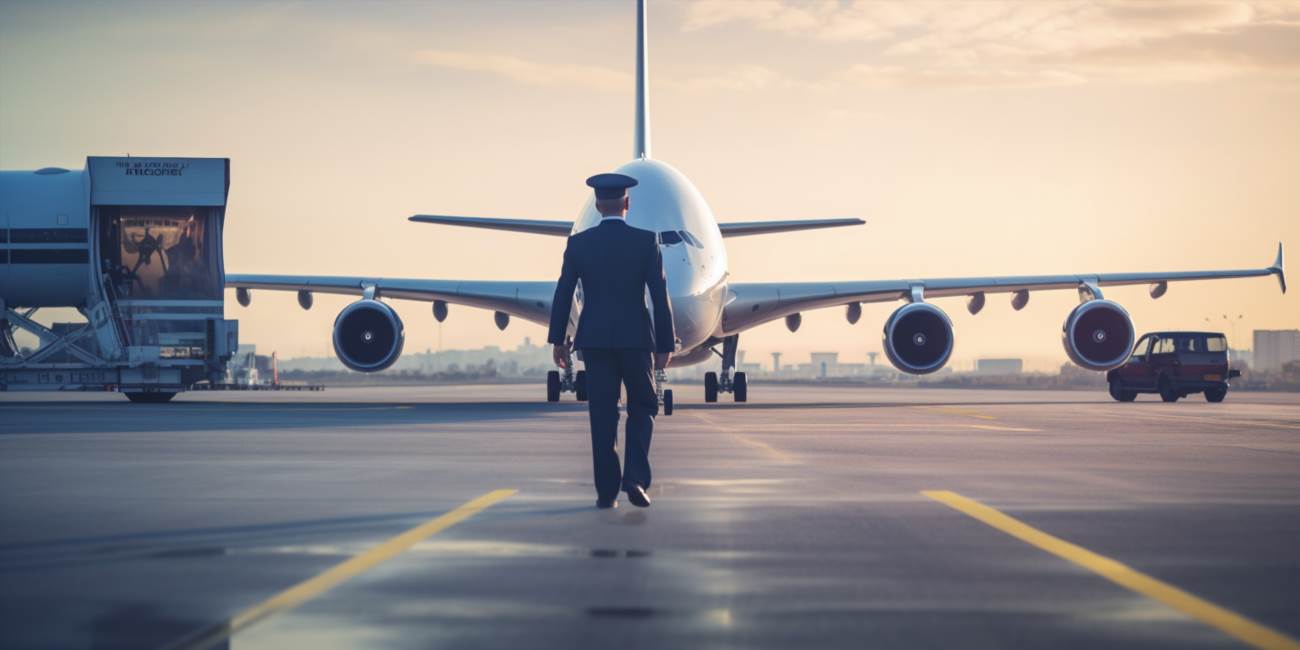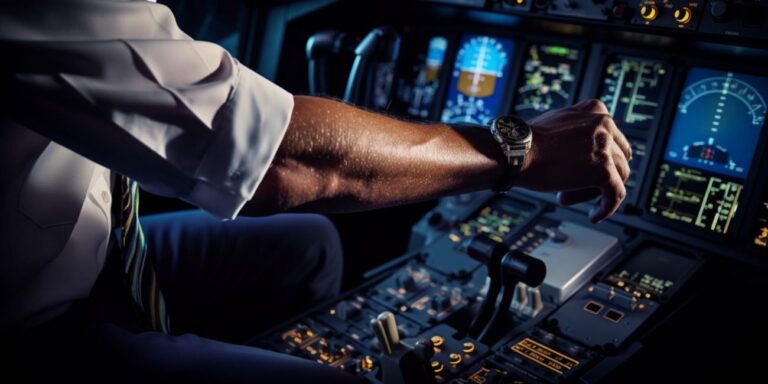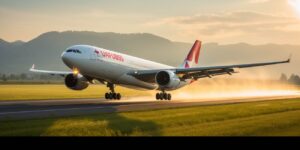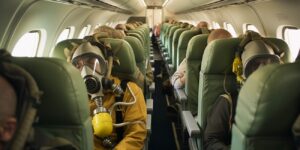The process advances to acquiring a commercial pilot license (CPL) and an Airline Transport Pilot License (ATPL). The ATPL requires accumulating a substantial number of flight hours, often through roles like a flight instructor or co-pilot. The complexity of handling an Airbus A380 necessitates additional type-specific training, usually provided by the airline or through specialized programs.
Salaries for Airbus A380 pilots vary significantly based on experience, airline, and region. Entry-level salaries can range from moderate to lucrative, often starting around $50,000 to $80,000 annually. However, with experience and seniority, salaries can substantially increase, reaching six-figure sums and beyond. Major airlines tend to offer more competitive airbus a380 pilot salaries, complemented by benefits like health insurance, retirement plans, and travel perks.
| Experience Level | Salary Range |
|---|---|
| Entry-Level | $50,000 – $80,000 |
| Experienced/Senior | Six-figure and beyond |
Job prospects for Airbus A380 pilots have fluctuated in recent years due to changes in the aviation industry. Factors like economic conditions, airline expansions or contractions, and technological advancements influence the demand for pilots. Despite periodic fluctuations, the demand for skilled pilots, especially those trained on larger aircraft like the Airbus A380, remains steady.
The role of an Airbus A380 pilot extends beyond flying the aircraft. They oversee pre-flight checks, coordinate with the flight crew, communicate with air traffic control, and ensure passenger safety. This multifaceted role demands strong decision-making skills, adaptability, and a commitment to safety protocols.
How to become an airbus a380 pilot: required training and qualifications
Becoming an Airbus A380 pilot is a dream that many aviation enthusiasts aspire to achieve. The journey to command one of the world’s largest commercial aircraft involves a rigorous training process and a set of specific qualifications.
Education and Basic Requirements:
To embark on the path to become an Airbus A380 pilot, aspiring individuals must start with a solid educational foundation. While a high school diploma is the minimum requirement, most airlines and aviation authorities prefer candidates with a bachelor’s degree in aviation, aeronautical engineering, or a related field. Additionally, candidates must be at least 18 years old and hold a valid passport.
Private Pilot License (PPL):
The journey typically begins with obtaining a Private Pilot License (PPL). This involves a minimum number of flight hours, usually around 40-60, and passing written and practical exams. During this stage, aspiring pilots learn the fundamentals of flying and aircraft control.
Commercial Pilot License (CPL):
After acquiring the PPL, the next step is to obtain a Commercial Pilot License (CPL). This requires a higher number of flight hours, often ranging from 150 to 250 hours. During CPL training, pilots refine their flying skills, learn about navigation, and gain experience in various weather conditions.
Instrument Rating (IR):
Instrument Rating (IR) is a crucial qualification for Airbus A380 pilots. This rating allows pilots to fly solely by reference to instruments, making them proficient in handling the aircraft in low-visibility conditions. Pilots must undergo additional training and pass exams to obtain this qualification.
Multi-Engine Rating (ME):
As the Airbus A380 is a multi-engine aircraft, pilots need to obtain a Multi-Engine Rating (ME). This involves training on aircraft with more than one engine, enhancing the pilot’s ability to manage complex systems and emergencies.
Airline Transport Pilot License (ATPL):
The pinnacle of a pilot’s training is the Airline Transport Pilot License (ATPL). To qualify for an ATPL, candidates must meet specific flight hour requirements, often totaling around 1500 hours. This license allows pilots to act as the captain or first officer of an Airbus A380.
Type Rating:
After obtaining an ATPL, pilots must undergo a type rating specific to the Airbus A380. This training focuses on the aircraft’s systems, procedures, and handling characteristics. It typically involves both simulator sessions and actual flight time with an instructor.
Experience and Application:
With the required licenses and type rating in hand, pilots often gain experience by working as first officers on smaller aircraft before transitioning to the Airbus A380. Airlines have their own set of requirements, and candidates must pass a thorough selection process, including interviews and simulator assessments, to secure a position as an Airbus A380 pilot.
Continuous Training:
Once employed as an Airbus A380 pilot, individuals undergo continuous training to stay current with the latest technology, safety procedures, and regulatory requirements. This includes recurrent simulator sessions, medical check-ups, and ongoing professional development.
How much does an airbus a380 pilot earn: salaries and pay scales

Being at the helm of an Airbus A380 is not just a responsibility but a lucrative profession. For those navigating the skies, the compensation varies based on several factors, including experience, the type of airline, and regional disparities.
Starting with regional airline pilot pay, it’s important to note that regional pilots often begin their careers with lower salaries compared to their counterparts in major airlines. The entry-level pay can range from modest figures, reflecting the nature of short-haul flights and smaller aircraft.
As pilots gain experience and clock in more flight hours, they may set their sights on upgrading to a major airline. This transition not only involves flying larger aircraft but also comes with a significant boost in earnings. The major airline pilot salary is notably higher, reflecting the complexity of handling larger fleets and longer routes. It’s a testament to the skillset and experience required for such responsibilities.
One of the milestones in a pilot’s career is the coveted captain upgrade. This progression from first officer to captain is not just a symbolic achievement but also a substantial leap in pay. Captains, or commanders, assume greater responsibilities in the cockpit, and this is duly reflected in their compensation. The upgrade is often accompanied by a notable increase in salary, acknowledging the added leadership and decision-making responsibilities.
Looking ahead, the aviation industry is witnessing a dynamic landscape in terms of pilot demand forecast. With the growing global connectivity and increasing reliance on air travel, the demand for skilled pilots is on the rise. This demand forecast extends not only to major airlines but also filters down to regional carriers, creating opportunities for pilots across the spectrum.
Amidst these changes, pilot unions play a pivotal role in negotiating and securing favorable terms for pilots. These unions advocate for fair wages, reasonable working hours, and improved working conditions. Their influence is particularly pronounced in major airlines, where collective bargaining ensures that pilots receive competitive salaries and benefits.
Job prospects and career opportunities for airbus a380 pilots
The Airbus A380 continues to be a marvel in aviation, and with its soaring presence, the demand for skilled pilots to navigate this colossal aircraft remains unwavering. Amidst the expansive skies, pilot job openings for A380 captains are capturing the attention of aviation enthusiasts and seasoned aviators alike.
Looking ahead, the pilot hiring forecast paints a promising picture for those aspiring to command the A380. Airlines worldwide are gearing up for substantial fleet expansions, and the need for adept pilots is at the forefront of their strategies. This surge in demand has given rise to a positive future pilot shortage, signaling a golden era for individuals seeking exciting career opportunities in the cockpit.
Major airlines are unveiling ambitious airline expansion plans, unveiling routes that crisscross the globe. As they bring new destinations into their networks, the need for skilled pilots intensifies. The Airbus A380, with its long-haul capabilities, becomes a focal point in these expansion initiatives. This trend not only opens up avenues for experienced pilots but also beckons newcomers to embark on a journey in aviation.
One notable trend in the industry is the emphasis on early captain upgrade programs. Airlines recognize the value of retaining and nurturing talent within their ranks. As a result, they are fast-tracking the progression of first officers to the coveted position of captain. This not only addresses the demand for captains in the present but also aligns with long-term workforce planning, ensuring a steady supply of experienced commanders for the growing fleets.
For aspiring aviators eyeing a career with the Airbus A380, the landscape is rich with opportunities. The combination of pilot job openings, a positive pilot hiring forecast, the prospect of addressing the future pilot shortage, unfolding airline expansion plans, and the allure of an early captain upgrade makes the journey into the cockpit of the A380 an exhilarating adventure.






